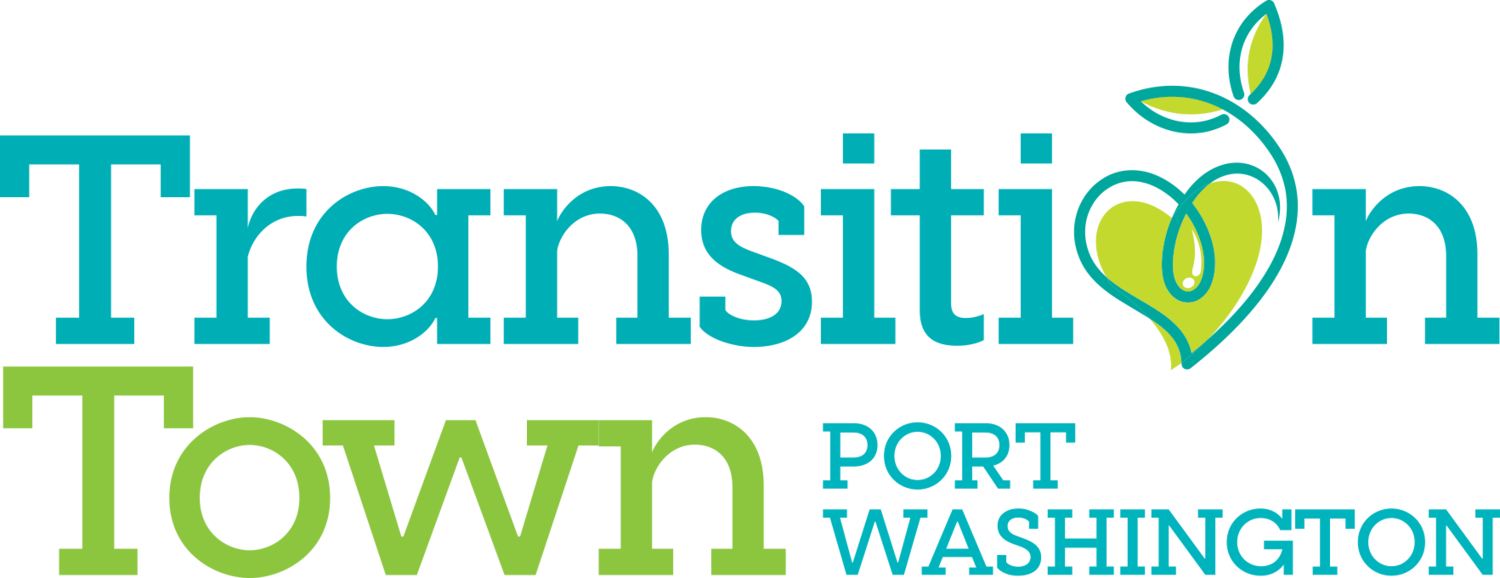2024- We Must Act Now
At Transition Town Port Washington we are working to create more sustainable and resilient communities through individual actions and collaborations. We have created a list of things each of us can do this year to further this goal. We hope this inspires all of you. (This is by no means a comprehensive list, consider it a place to begin).
1) Vote/Advocate for the Environment
The single most important thing each of us can do is to vote for government officials who are committed to protecting our environment and reducing our greenhouse gas emissions. We must then hold these representatives accountable to their environmental commitments. Systemic change through legislation is required to fight this climate emergency.
If you are interested in joining TTPW Advocacy team please email info@transitiontownpw.org.
2) Reduce your Household Carbon Footprint
TTPW has partnered with CURE100 (Communities United to Reduce Emissions 100%) to help you understand your household’s carbon footprint, see how it compares to your neighbors, and to learn how to reduce your emissions effectively. Sign up to use their Carbon Tracker App here: https://www.transitiontownpw.org/ttpw100
3) Bike, Walk, and Take Public Transportation
Despite advances in technology, passenger vehicles remain one of the biggest individual contributors to global CO2 emissions. When you can, consider biking, walking or taking public transportation instead of jumping in your car — it is a good practice for the planet and also great for your individual physical and mental health.
Would you like to bike but feel our town lacks adequate bike infrastructure and safety? Join our TTPW Bike Working Group as we work to build a biking culture in our town.
4) Reduce (or eliminate) Red Meat Consumption
One of the most important things you can do personally to lower your carbon footprint is to stop eating red meat. Beef produces the most greenhouse gas emissions, include methane, which is more harmful to our planet than CO2. A global average of 110lb (50kg) of greenhouse gases are released per just 3.5oz of protein. Lamb has the next highest greenhouse gas emission levels.
5) Cut out Single-Use plastic wherever possible
Simply put, the health and environmental impacts of plastics have become a global crisis. From its production, use, and disposal, plastic poisons and pollutes. Besides having a profound detrimental impact on our wildlife, plastics are now found in our bloodstreams and even in human placentas.
Wherever you can, reduce your use of plastics. Ask restaurants, shops, and stores to “Hold the Plastic Please”. Use reusable dish-ware and take out containers. To learn more about the plastic crisis and what you can do go to: https://www.beyondplastics.org/
6) Create a Sustainable Yard and Rewild
Your yard is an amazing opportunity to create habitat and give back to the earth. Consider rewilding your lawns as they are very bad for local wildlife and pollinators and require an absurd amount of costly maintenance.
Do more by doing and spending less! Skip the fertilizers that directly pollute our drinking water supply. Leave the leaves (or push them into your flowerbeds), and give the plants and animals a blanket and nutrients for the winter. (*If you do decide to discard the leaves be sure to use paper bags.) Stop using gas-powered leaf blowers and lawn-equipment as they emit more pollutants than a large automobile and pose health hazards to the workers that use them and disturb wildlife. And finally, plant native and drought-resistant plants and trees that the bees and wildlife desperately need, or consider a vegetable garden.
7) Limit Food Waste and Be Sure to Compost
An estimated 30% of all food produced is discarded! It is incinerated, or ends up rotting in fields, storage, dumpsters, or landfills where it converts to methane, a greenhouse gas that traps up to 85% more heat than CO2. Try reducing the amount of food you throw out by planning your meals and having left-over night. Recycle any remaining food scraps that you may have by composting. Composting is easy and it turns kitchen scraps into nutritious soil for plants, insects and birds. Your food scraps can feed the earth rather than suffocating it.
If you do not have a compost at home join our TTPW community compost at the Science Museum of Long Island. We compost through the winter and have space for new families to join.
8) Grow your impact: Work Together!
It is important for each one of us to act to minimize our own carbon footprint, but our impact is so much greater when we work together to meet this climate crisis and build a brighter, more sustainable future for all. Join the effort in whatever way suits you best.
At Transition Town Port Washington we have many projects that are already under way which you can join. Or you can bring your own interests and concerns to the table and start a new initiative. There is no better time than now.
Wishing you a wonderful year.
Onwards!
Transition Town Port Washington
